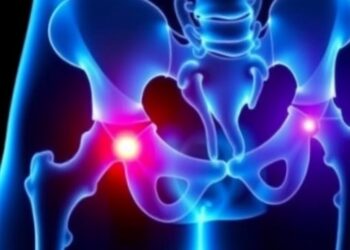Wearing a surgical face mask in public spaces reduces the risk of self-reported respiratory symptoms, finds a trial of adults in Norway published by The BMJ today.
Wearing a surgical face mask in public spaces reduces the risk of self-reported respiratory symptoms, finds a trial of adults in Norway published by The BMJ today.
The effect was moderate – a 3.2% reduction in symptoms, equivalent to around 3,300 fewer infections per 100,000 people – but the researchers say these results support the claim that face masks may be an effective measure to reduce the rate of self-reported symptoms consistent with respiratory tract infections.
Observational studies suggest that face masks reduce the risk of respiratory tract infections, but findings from randomised trials are inconclusive.
To explore this further, the researchers carried out a randomised controlled trial to evaluate the personal protective effects of wearing versus not wearing surgical face masks in public spaces on self-reported respiratory symptoms over a 14 day period.
Their findings are based on data from 4,575 adults in Norway (average age 51; 61% women) between 10 February 2023 and 27 April 2023, during a normal influenza season in the Nordic countries.
Participants completed an online questionnaire about sociodemographic and lifestyle factors, beliefs about face masks and risk of infection, and face mask use in the two weeks before the study.
Some 2,313 participants were then randomly assigned to wear a disposable surgical face mask when close to people in public spaces (eg, shopping centres, streets, public transport) over 14 days (intervention arm) and 2,262 were asked to remain mask-free when close to people in public spaces (control arm).
Participants were asked to report any symptoms consistent with a respiratory infection, defined as fever and one respiratory symptom (stuffy or runny nose, sore throat, coughing, sneezing, heavy breathing); or one respiratory symptom and at least two other symptoms (body ache, muscular pain, fatigue, reduced appetite, stomach pain, headache, loss of smell).
They were also encouraged to take a covid-19 test when they felt unwell, but the number of participants taking a test was low.
Overall, 163 (8.9%) participants in the intervention arm and 239 (12.2%) in the control arm reported respiratory symptoms – an absolute risk difference of 3.2% in favour of the face mask intervention. However, no statistically significant effect was found on self-reported or registered covid-19 infection between the two arms.
Of 155 participants who reported adverse effects, 80 reported unpleasant comments from other people when wearing a face mask in public spaces and feeling “silly” being the only one wearing a face mask in public. Others (40) said wearing the mask was uncomfortable or tiring because of breathing difficulties, fogging of glasses, and poor fit.
The authors acknowledge that all the data were self-reported and suggest that wearing a face mask may have led participants to avoid public spaces or others to keep a larger social distance.
Environmental concerns associated with face masks (eg, manufacture and transport, emissions, littering, landfill) should also be considered, they add.
Nevertheless, they conclude that wearing a face mask is a simple, relatively low cost, and generally well tolerated intervention and is one of several public health and social measures that may be worth considering for reducing the spread of respiratory infections.
[Ends]
Journal
The BMJ
Article Title
Personal protective effect of surgical face masks in public spaces on self-reported respiratory symptoms in adults: pragmatic randomised superiority trial
Article Publication Date
24-Jul-2024
COI Statement
All authors have completed the ICMJE uniform disclosure at www.icmj.org/disclosure-of-interest/ and declare: support from the Centre for Epidemic Interventions Research, Norwegian Institute of Public Health; no financial relationship with any organisation that might have an interest in the submitted work in previous three years; AF has received financial support from the World Health Organization (WHO) to attend meetings it has hosted; CR is named inventor on a patent application related to vaccine development. LGH’s institution (RC2NB) was contracted by WHO for the development of study protocol templates to evaluate public health and social measures; LGH received travel support from WHO; no other relationships or activities that could appear to have influenced the submitted work




